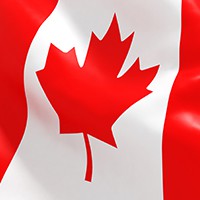Last updated: September 19 2017
Canada “Celebrates” 100 Years of Income Tax

National income tax is such a given in western economies that we lump it in with death as being unavoidable and portray the “Taxman” as some kind of grim reaper. But, in reality, federal income tax is a fairly recent invention — in Canada, we’ve just now reached the 100-year anniversary of the practice.
Ironically, it was only supposed to be a temporary measure to help finance World War I.
The provinces were already taxing income directly at that time, but federal efforts to raise funds through postal rates, customs and excise duties and other various means were simply not enough to feed the engine of war. On September 20, 1917, the Income War Tax Act, 1917 received Royal Assent and, in one form or another, has been with us ever since.
Since it was meant as a temporary measure, it was to be reviewed a year or two after the end of the war to assess whether it was still necessary and suitable. Sir Thomas White, Minister of Finance in Sir Robert Borden’s Conservative government at the time, expressed concerns that the cost of administration alone would be too high, that the tax not be significantly higher than the income tax already imposed in the U.S. and that substantial taxes on income would run counter to Canada’s policy of encouraging immigration.
If you think some of today’s rules are restrictive, you’ll be glad that the appeals process of 1917 is a thing of the past.
Taxes were due within one month of the mailing date of the notice of assessment and any objection had to be made in writing within 20 days after that date. Taxpayers could further appeal unsatisfactory decisions to the Exchequer Court if they expressed their intention to do so within 20 days of the ruling and provided security of $400 (nearly $7,000 in today’s dollars), and the decision of that body was final and conclusive.
Still firmly in place after World War II, Canada’s income tax system was overhauled significantly in 1946, following a report by a special committee of the Senate appointed to examine it. The Income Tax Appeal Board was created to make the appeals process more convenient and less costly, allowing taxpayers more generous timelines and removing the financial burden of having to post security.
In 1948, a new Income Tax Act came into effect, making sweeping changes to tax legislation in Canada. Clearly income tax was here to stay.
Here are a few other significant dates:
-
1970: Then-Minister of Justice, John Turner, introduced Bill C-174 in the House, a major overhaul of the legislation relating to income and estate tax assessments that also established the Tax Review Board. Responsibility for this new board was shifted from the Minister of National Revenue to the Department of Justice. The goal was to make the board more accessible to the ordinary taxpayer, at no cost and without formal procedures. Appeals were now made possible to the new Federal Court of Appeal and beyond that, to the Supreme Court of Canada.
-
1983: The Tax Court of Canada replaced the Tax Review Board; Bill C-167 recognized the new body as separate from the Department of National Revenue and a court in both name and status, establishing clearly its judicial independence. Although procedure remained relatively unchanged from the practices before the Tax Review Board, the jurisdiction of the Tax Court was expanded to hear appeals under Part IV of the Unemployment Insurance Act, 1971, and matters relating to the Canada Pension Plan and the Petroleum and Gas Revenue Tax Act.
-
1984: A task force on Revenue Canada identified lengthy delays experienced by appellants to the Tax Court due to an unprecedented volume of cases, and recommended an informal process to handle disputes involving less than $5,000.
-
1991: With the introduction of the GST, the Tax Court of Canada Act was further amended and its jurisdiction was expanded to include appeals under Part IX of the Excise Tax Act, the Old Age Security Act, the War Veterans Allowance Act and more.
- 2003: The Tax Court of Canada became a Superior Court of Record and its current jurisdiction was defined and enhanced in 2006.
Today, the Court has 22 judges and two modes of procedure — general procedure, and an informal procedure that can be used as long as:
- the aggregate of all amounts at issue, including interest, is $25,000 or less;
- the amount of the loss determined under subsection 152(1.1) of the Income Tax Act is $50,000 or less; or
- the only subject matter of the appeal is an amount of interest assessed under the Income Tax Act.
Happy 100th anniversary, income tax! You’ve come a long way for what was supposed to be a temporary war-time measure!
For more information on the 100-year history of income tax in Canada, click here.
Want to master the tax return and all its nuances? Check out Knowledge Bureau’s new Lite Course: Introduction to Personal Tax Preparation.
Or, to celebrate income tax’s 100th — and Canada’s sesquicentennial — come to the Distinguished Advisor Conference, where the theme is Canada 150: Financial Advice at the Crossroads of Change.
©2017 Knowledge Bureau Inc. All Rights Reserved.





